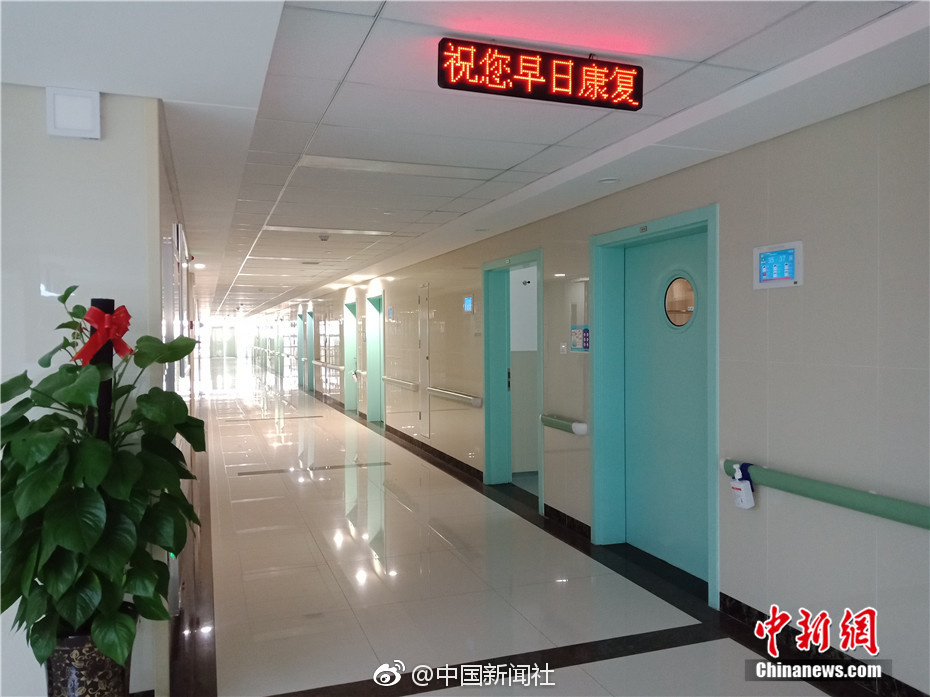
1. The five functions of the operating system are processor management, memory management, device management, file management and job management. Processor management The most basic function of processor management is to process interrupt events. After configuring the operating system, various events can be processed.
2. The main function of the computer operating system is process management, and its work is mainly process scheduling. In the case of a single user and a single taskNext, the processor is only monopolized by one user's task, and the process management work is very simple.
3. Operating System (abbreviation: OS) is a group of interrelated system software programs that supervise and control computer operation, use and run hardware, software resources and provide public services to organize user interaction.
4. Five major management functions of the operating system: (1) Job management: including tasks, interface management, human-computer interaction, graphical interface, voice control and virtual reality, etc. ( 2) File management: also known as information management. ( 3) Storage management: The essence is the management of storage "space", which mainly refers to the management of the main memory.
Any information system has five basic functions, namely: information collection and recording (input); information storage; information processing; information transmission; information output .
According to the functional introduction of the information system, the information system has five basic functions: input, storage, processing, output and control. Different functions have different functions, such as input function: the input function of the information system is determined by the purpose to be achieved by the system, the ability of the system and the permission of the information environment.
Five basic functions of the information system: input, storage, processing, output and control. Input function: The input function of the information system is determined by the purpose to be achieved by the system, the ability of the system and the permission of the information environment.Storage function: Storage function refers to the ability of the system to store various information and data. Mainly including: statistical functions.
The operating system has five functions: processor management: mainly controls and manages the work of the CPU. Storage management: mainly allocate and manage memory. Device management: mainly manage basic input and output devices. File management: responsible for the organization, storage, operation and protection of computer files.
The functions of the computer operating system include: processor management, memory management, device management, file management, job management and other functional modules. Processor management. The most basic function of processor management is to handle interrupt events. The processor can only detect interrupt events and generate interrupts and cannot process them.
The main function of the computer operating system is process management, and its main work is process scheduling. In the case of a single user and a single task, the processor is only monopolized by one user's task, and the work of process management is very simple.
The main functions of the operating system are process and processor management, job management, storage management, device management and file management, as follows: process and processor management. Because the execution of the program must rely on the processor, only one program flow can be processed and executed at any time. Homework management.
I) Processor management The most basic function of processor management is to handle interrupt events. The processor can only detect interrupt events and generate interrupts, and cannot handle these interrupt events. After configuring the operating system, all types of events can be handled.Another function of processor management is processor scheduling.
Five management functions of the operating system: job management: including tasks, interface management, human-computer interaction, graphical interface, voice control and virtual reality, etc. File management: also known as information management. Storage management: The essence is the management of storage "space", which mainly refers to the management of the main memory.

The storage management function of the operating system is to manage memory resources. It mainly realizes memory allocation and recovery, storage protection and memory expansion. The device management of the device management operating system is responsible for allocating and recycling external devices, and controlling external devices to operate according to the requirements of user programs.
The functions of the computer operating system include: processor management, memory management, device management, file management, job management and other functional modules. Processor management. The most basic function of processor management is to handle interrupt events. The processor can only detect interrupt events and generate interrupts and cannot process them.
The five functions of the operating system are processor management, memory management, device management, file management and job management.Processor management The most basic function of processor management is to process interrupt events. After configuring the operating system, various events can be processed.
Binance Download for PC Windows 10-APP, download it now, new users will receive a novice gift pack.
1. The five functions of the operating system are processor management, memory management, device management, file management and job management. Processor management The most basic function of processor management is to process interrupt events. After configuring the operating system, various events can be processed.
2. The main function of the computer operating system is process management, and its work is mainly process scheduling. In the case of a single user and a single taskNext, the processor is only monopolized by one user's task, and the process management work is very simple.
3. Operating System (abbreviation: OS) is a group of interrelated system software programs that supervise and control computer operation, use and run hardware, software resources and provide public services to organize user interaction.
4. Five major management functions of the operating system: (1) Job management: including tasks, interface management, human-computer interaction, graphical interface, voice control and virtual reality, etc. ( 2) File management: also known as information management. ( 3) Storage management: The essence is the management of storage "space", which mainly refers to the management of the main memory.
Any information system has five basic functions, namely: information collection and recording (input); information storage; information processing; information transmission; information output .
According to the functional introduction of the information system, the information system has five basic functions: input, storage, processing, output and control. Different functions have different functions, such as input function: the input function of the information system is determined by the purpose to be achieved by the system, the ability of the system and the permission of the information environment.
Five basic functions of the information system: input, storage, processing, output and control. Input function: The input function of the information system is determined by the purpose to be achieved by the system, the ability of the system and the permission of the information environment.Storage function: Storage function refers to the ability of the system to store various information and data. Mainly including: statistical functions.
The operating system has five functions: processor management: mainly controls and manages the work of the CPU. Storage management: mainly allocate and manage memory. Device management: mainly manage basic input and output devices. File management: responsible for the organization, storage, operation and protection of computer files.
The functions of the computer operating system include: processor management, memory management, device management, file management, job management and other functional modules. Processor management. The most basic function of processor management is to handle interrupt events. The processor can only detect interrupt events and generate interrupts and cannot process them.
The main function of the computer operating system is process management, and its main work is process scheduling. In the case of a single user and a single task, the processor is only monopolized by one user's task, and the work of process management is very simple.
The main functions of the operating system are process and processor management, job management, storage management, device management and file management, as follows: process and processor management. Because the execution of the program must rely on the processor, only one program flow can be processed and executed at any time. Homework management.
I) Processor management The most basic function of processor management is to handle interrupt events. The processor can only detect interrupt events and generate interrupts, and cannot handle these interrupt events. After configuring the operating system, all types of events can be handled.Another function of processor management is processor scheduling.
Five management functions of the operating system: job management: including tasks, interface management, human-computer interaction, graphical interface, voice control and virtual reality, etc. File management: also known as information management. Storage management: The essence is the management of storage "space", which mainly refers to the management of the main memory.

The storage management function of the operating system is to manage memory resources. It mainly realizes memory allocation and recovery, storage protection and memory expansion. The device management of the device management operating system is responsible for allocating and recycling external devices, and controlling external devices to operate according to the requirements of user programs.
The functions of the computer operating system include: processor management, memory management, device management, file management, job management and other functional modules. Processor management. The most basic function of processor management is to handle interrupt events. The processor can only detect interrupt events and generate interrupts and cannot process them.
The five functions of the operating system are processor management, memory management, device management, file management and job management.Processor management The most basic function of processor management is to process interrupt events. After configuring the operating system, various events can be processed.
 Binance app
Binance app
654.37MB
Check Binance download Android
Binance download Android
222.91MB
Check Binance APK
Binance APK
569.25MB
Check OKX Wallet download
OKX Wallet download
812.95MB
Check Binance download
Binance download
698.45MB
Check OKX review
OKX review
912.83MB
Check Binance wallet
Binance wallet
939.18MB
Check Binance download iOS
Binance download iOS
467.58MB
Check Binance login
Binance login
532.81MB
Check Binance download Android
Binance download Android
664.35MB
Check Binance wallet
Binance wallet
716.29MB
Check Binance app download Play Store
Binance app download Play Store
765.86MB
Check Binance download Android
Binance download Android
723.84MB
Check Binance US
Binance US
769.92MB
Check OKX Wallet app
OKX Wallet app
945.36MB
Check OKX Wallet Sign up
OKX Wallet Sign up
632.63MB
Check Okx app download
Okx app download
433.73MB
Check Binance US
Binance US
932.54MB
Check Binance APK
Binance APK
941.69MB
Check OKX review
OKX review
734.37MB
Check Binance APK
Binance APK
381.67MB
Check Binance wikipedia
Binance wikipedia
492.68MB
Check OKX Wallet download
OKX Wallet download
654.82MB
Check Binance APK
Binance APK
216.34MB
Check Binance Download for PC
Binance Download for PC
239.41MB
Check OKX download
OKX download
756.76MB
Check Binance login App
Binance login App
781.92MB
Check Binance exchange
Binance exchange
573.81MB
Check Binance market
Binance market
749.82MB
Check Binance login
Binance login
286.77MB
Check OKX Wallet download
OKX Wallet download
445.67MB
Check OKX Wallet app download for Android
OKX Wallet app download for Android
285.71MB
Check Binance download
Binance download
528.99MB
Check Binance exchange
Binance exchange
656.91MB
Check Binance APK
Binance APK
427.33MB
Check okx.com login
okx.com login
113.27MB
Check
Scan to install
Binance Download for PC Windows 10 to discover more
Netizen comments More
1815 不知去向网
2025-01-10 13:42 recommend
1745 人中骐骥网
2025-01-10 13:32 recommend
1863 树碑立传网
2025-01-10 12:25 recommend
2746 瞪目结舌网
2025-01-10 11:59 recommend
1477 有钱有势网
2025-01-10 11:42 recommend